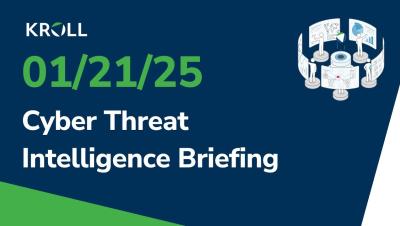January 21, 2025 Cyber Threat Intelligence Briefing
This week’s briefing covers: Kroll Out of Band Published - FortiOS and FortiProxy Kroll Threat Intelligence has published an out of band report on CVE-2024-55591 affecting FortiOS and FortiProxy. The vulnerability has a CVSS score of 9.8 and has been exploited in the wild.






